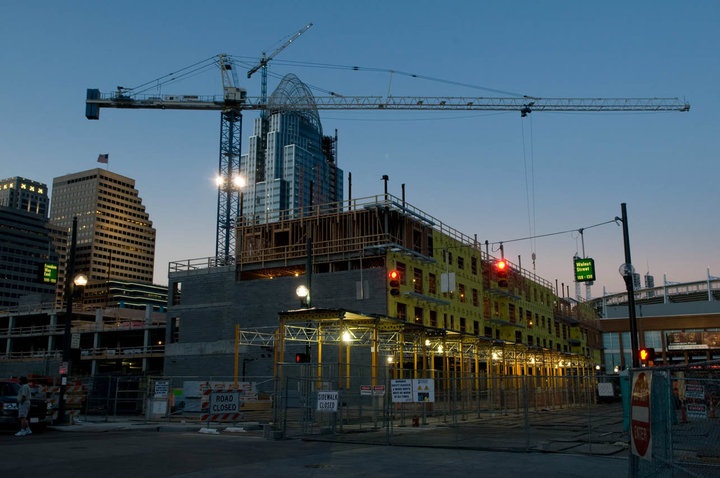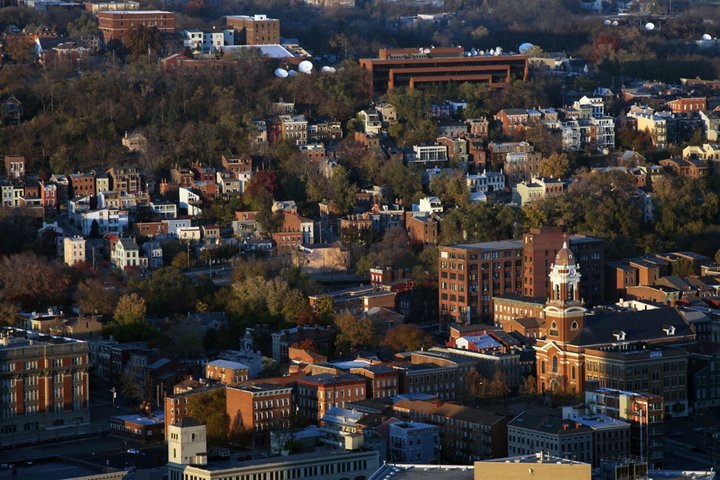In 2002 the concept of urbanism arguably hit an all-time low. The city was recovering from civil unrest that wreaked havoc on inner-city neighborhoods the year before and caused economic boycotts, urban neighborhoods were suffering from severe disinvestment, urban populations were in decline, and the City’s Planning Department had been cut by then Mayor Charlie Luken.
Today, however, the state of urbanism in Cincinnati is very much different. The civil unrest of 2001 has led to massive police reform and a focus from major corporations on those most struggling inner-city neighborhoods. Investment in urban neighborhoods has become a priority of recent political leaders and urban populations are increasing all over Cincinnati. Also during that time the Planning Department has been restored along with the creation of the Office of Environmental Quality, and the development of the City’s first comprehensive plan in decades.
In addition to the formal progress that has been made, there is a diverse group of urbanists that have organized around common beliefs and goals that are looking to improve Cincinnati’s urbanism.
“Urbanists believe that great historic cities are the highest achievement of the human spirit and once again ought to be the preferred places to live for America’s most talented and productive people,” explained University of Cincinnati adjunct planning professor, and co-founder of the Urbanists, Terry Grundy. “Urbanism, as the term is used in Cincinnati, is an intellectual, cultural and political movement which promotes this point of view.”
As Grundy puts it, the urbanism movement emerged in Cincinnati shortly after the civil unrest took place in 2001. He says that a group thinkers, civic leaders and philanthropists came together to reflect on what had happened in the city and decided that something needed to change.
“The trajectory, if allowed to continue, would have inevitably led to the ‘Detroit-izing’ of Cincinnati. This was a prospect those thinkers were not prepared to accept, and they have ever since been promoting a ‘place of choice’ ideology for the city.”
Most recently that thought movement has led to the Soapbox Speaker Series which is co-sponsored by Soapbox Cincinnati, the University of Cincinnati’s Niehoff Urban Studio and The Urbanists. The intent, Grundy explains, is to provide opportunities for people who share the urbanist perspective, or who are interested in learning more, to network and come together to learn and share ideas.
The first speaker series event held in uptown Cincinnati’s Corryville neighborhood focused on how the city’s food scene has supported urbanist outcomes through things like local food sourcing, food trucks, street vendors and more. The next speaker series event, to be held on January 5 from 5:30pm to 7:30pm, will focus on philanthropists of urbanism in Cincinnati.
“These are people who moved into and did development work in historic neighborhoods that had declined and, by their example, encouraged others to take a chance on those neighborhoods,” Grundy said.
The event will feature a panel of Sean Parker, Beth Gottfried, H.C. Buck Niehoff and Dave Abbott.
“Urbanism, like all emergent movements, needs to be backed up by resources if it is to be successful in promoting its ideas and pursuing its concrete development strategies. The individuals, on this panel, have been willing to direct their foundation’s investments to activities that are urbanist in intent.”
Those interested in attending the third Soapbox Speaker Series event (map) – Patrons of Urbanism: New Ambitions for Public-Private Partnerships – are encouraged to register in advance for the free event. Organizers say that a happy hour reception and light food will be provided by Fresh Table, and that a $2,500 FUEL grant will be awarded to one lucky applicant.


